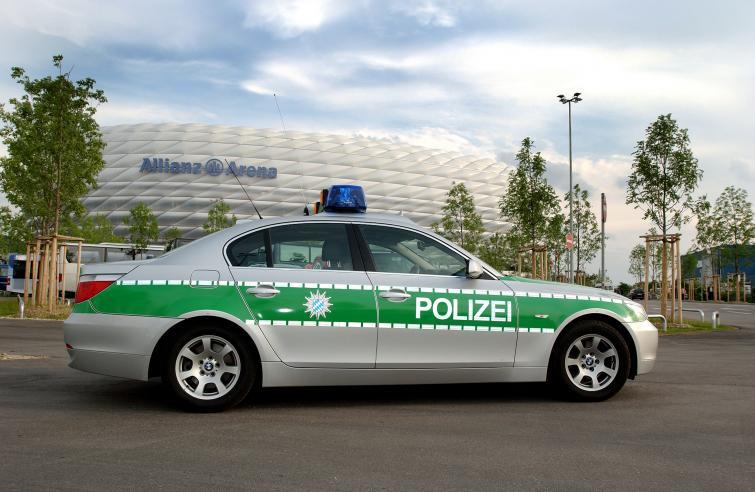Poles are not afraid of EU whip on road pirates - a loophole in the law
 An EU directive that makes it easier to punish foreign drivers for traffic violations in member countries has already entered into force. But Polish drivers have not yet been insured, because the authorities of our country have not changed the law.
An EU directive that makes it easier to punish foreign drivers for traffic violations in member countries has already entered into force. But Polish drivers have not yet been insured, because the authorities of our country have not changed the law.

The government has just passed a bill that would allow Polish drivers to be quickly punished for traffic violations in other EU countries. For this law to come into force, it must be approved by Parliament and signed by the President. Poland was obliged to do so by EU Directive 2011/82/EU, the so-called. across borders, on facilitating the cross-border exchange of information on crimes or offenses related to road safety. More than two years ago, the European Parliament declared that EU countries should be able to collect a fine from a driver who is a citizen of another EU country.
This decision was considered necessary as the automatic traffic control system is becoming more common, i.e. more speed cameras and sectional speed measuring devices are being installed. At the same time, most drivers in foreign countries remained practically unpunished, since the authorities responsible for collecting fines refused to apply them to foreigners. The reason was the complicated procedure for compensation for damages.
For example, if a speed camera tracked a Pole in one of the EU countries, then the police of that country asked the Central Register of Vehicles and Drivers in Warsaw for data on such a driver. But not all EU police forces have done so. The key element was the amount of the possible fine, for example, the Germans contacted the Poles when the fine exceeded 70 euros.
See also Speed cameras in Poland - there are already six hundred of them, and there will be more. View map
Last year, CEPiK received 15 15 applications from EU countries to obtain data on Polish drivers. However, this does not mean that XNUMX Poles have paid foreign fines.
- The police of another country has limited ability to collect a mandate from a Pole if he is in our country. In fact, the only possibility of enforcement was the detention of a driver who received a ticket in the country of issue, for example, during a scheduled roadside inspection. If a police officer claimed that a Polish driver had a previously issued and unpaid fine, he proceeded to execute him, says lawyer Rafal Nowak.
In such a situation, the Polish driver had to pay the ticket immediately at the place of inspection, and if he did not have so much money with him, then there are known cases of stopping the car before paying off the fine.
Union got along
Now everything must change. In accordance with EU directives, Directive 7/2011/EU on cross-border control (in other words, on the mutual enforcement of fines) officially entered into force on November 82 this year. Poland, as an EU member state, also had to adopt these rules. But the procedure for implementing these provisions in our legal system, i.e. change of relevant laws, not yet completed. So our citizens - at least for now - they do not include.
– Thus, Polish drivers can be punished by foreign services according to the old rules. The new rules will come into force only after a change in the legislation in our country, because our services can only operate on the basis of the law, the lawyer emphasizes.
So far, Directive 2011/82/EU has been approved by the government on 5 November. As we read in the announcement of the Government Information Center, the new rules should apply to Polish drivers who break traffic rules in European Union countries and drivers from EU member states who break rules in Poland.
Read also Riding on a slider unloads traffic jams, but drivers take it for a trick
“We are talking about the effective punishment of those responsible for violating traffic safety rules and the preventive effect - encouraging more careful driving, especially foreigners in our country,” the press release of the Government Information Center emphasizes. “In Poland, a National Contact Point (NCP) will be established, the task of which will be to exchange information with national contact points of other Member States of the European Union and transfer it to national authorities authorized to use them to prosecute traffic offenders. . The exchange of information will concern the registration data of the vehicles and their owners or holders.
The National Contact Point should become part of the structure of the new Central Register of Vehicles and Drivers 2.0. (new CEPiK 2.0.). The exchange of information between the NCC and the national contact points of other Member States of the European Union and entities authorized to receive it in Poland will take place in the ICT system through the European Eucaris system.”
But the NFP can only act on the basis of the law.
What types of traffic violations will be monitored:
- non-compliance with the speed limit
- driving a car without wearing seat belts
- transporting a child without a child seat
- non-observance of light signals or signs ordering the vehicle to stop
- driving after drinking alcohol or while intoxicated
- driving under the influence of drugs
- do not wear safety helmets while driving
- use of the road or part of it for other purposes;
- using a phone while driving that requires holding the handset or microphone
The new rules should be included in the Road Traffic Law, but for this it needs to be amended.
Time of deputies and senators
However, it is not known when the road code will be changed. The Government Information Center was unable to tell us when the relevant drafts would be submitted to the Saeima.
See also Arguing with a policeman? It is better not to accept a ticket and penalty points
If the government's proposals reach the Saeima this year, their final adoption by parliament could take weeks or even months. It is necessary to amend not only the Law on Road Traffic, but also a number of other laws, including those on the police, border guards, customs, municipal security and road transport. After approval by the Seimas, the law is still in the Senate, and then the finished document must be signed by the president, who has 21 days to do so.
Wojciech Frölichowski

